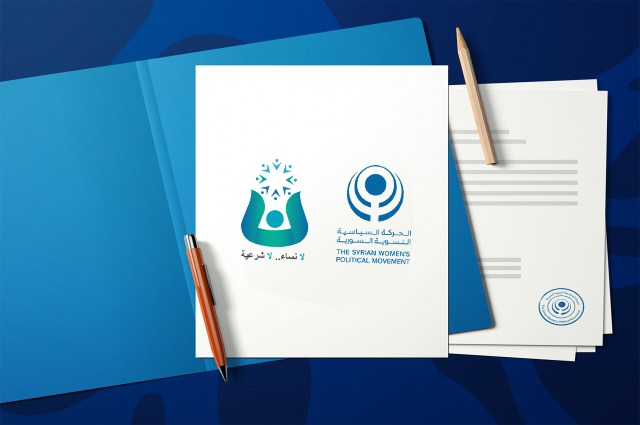Final Communiqué of The Third General Assembly Meeting of The Syrian Women’s Political Movement, June 2021
- updated: June 30, 2021
- |
“No Women… No Legitimacy”, this was the slogan of the Syrian Women’s Political Movement’s (SWPM’s) third General Assembly meeting, which was held during the month of June 2021 virtually for the second year in a row due to the COVID-19 pandemic.
The GA meeting began with the annual reports by the SWPM General Secretariat, committees, and teams, each of which presented an overview of their work and activities for the past year. The reports covered political, organizational, financial, and media aspects. The GA meeting also included a discussion of the political report and reaffirming the SWPM’s political vision, adopted since its establishment in October 2017 and which has been developed annually. The GA also discussed the challenges the SWPM faced during the past year and how they were overcome, as well as the political developments in the Syrian dossier at the domestic, regional, and international levels. Finally, the GA discussed the situation of Syrians inside Syria and abroad, with continued emphasis on the importance of the role of Syrian women at all levels, now and in the future.
The GA successfully conducted elections of the General Secretariat and the Monitoring Committee, in addition to voting on and ratifying amendments to the bylaws and adopting a code of conduct as an additional step in developing governance within the SWPM and confirming the principles and values according to which the SWPM, with all its members, works.
The GA reaffirmed the SWPM vision and principles, emphasized the importance of continuing to work in accordance therewith, and determined the need to emphasize the following:
- The only way to bring an end to the suffering of the Syrian people and ensure Syria’s territorial integrity and the unity of its people is by achieving a political transition pursuant to a comprehensive solution through the full implementation of UNSC Resolution 2254 (2015) and the relevant international resolutions, primarily UNSC Resolution 2118 (2013) and the Geneva Communiqué (2012), with real participation and representation of the Syrian people, which necessarily requires women’s participation at a minimum of 30% with the aim of reaching 50%, in all parts of the political process, and the commissions, committees, bodies, and institutions, which are part of or emerge from the political process during the transitional period and in the future Syria, and at all levels, particularly decision-making positions.
- Any elections acquire their legitimacy by ensuring the ability of participation by all Syrians, wherever they are, and that the first upcoming elections process must be part of the political transition according to the relevant UN resolutions, under UN supervision, and pursuant to the new constitution that will be drafted and approved by the Syrian people; and elections require taking measures to ensure the real participation of women therein, whether as voters or candidates for all positions, and such measures must be instituted in the Syrian constitution and legislation.
- Reject the policies aimed at repatriating refugees, where these do not meet the criteria that would make the return safe, voluntary, and dignified, which requires a safe and neutral environment, which has not yet been achieved in any part of Syria and cannot be achieved in light of dominance of the de facto forces — especially the Syrian regime — and their practices against Syrians.
- The importance of transitional justice and related measures, including accountability for anyone who committed crimes and violations that rise to the level of war crimes and crimes against humanity in Syria and against Syrians; and prioritizing the issue of the detainees and forcibly disappeared — by the Syrian regime and all sides to the conflict — as no real political transition can be achieved without resolving this issue.
- Protection of civilians in all parts of Syria and at all levels — especially security, humanitarian, health, and economic levels — must be the priority in drawing all policies and by all parties — Syrian, regional, and international — in dealing with the Syrian dossier.
